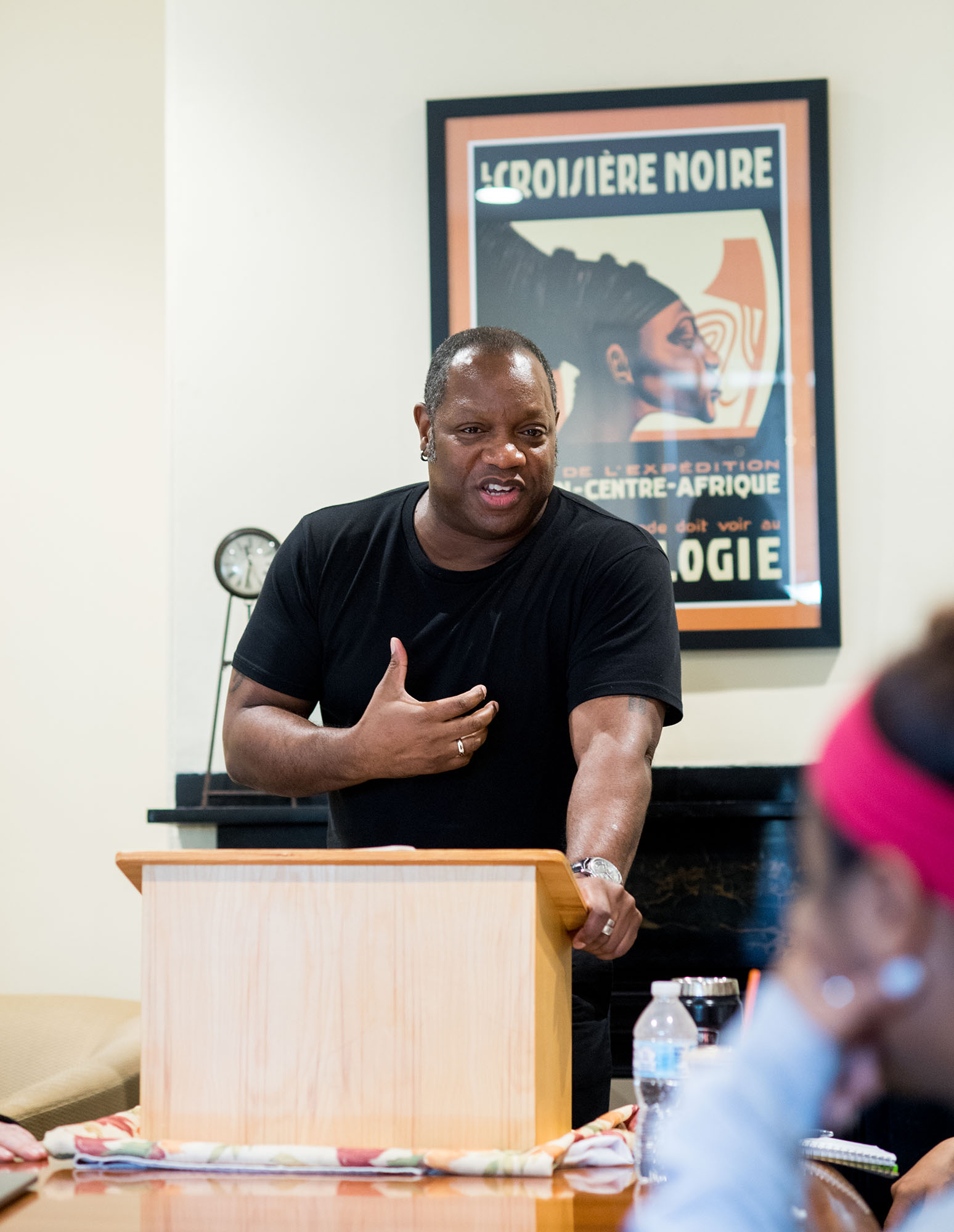Diversity, Equity & Inclusion
BU scholar challenges narrative around race and technology
Often, when Louis Chude-Sokei speaks about race and technology, he points out the first use of the word “robot” in 1921—long before the digital age, let alone artificial intelligence. It appeared in the title of a Czech play called Rossum’s Universal Robots by Karel Čapek.
In Czech, “robot” means coerced labor or slave.
One hundred years later, in the 2021 University Lecture titled “Beneath and Beyond Human: Race and Technology Between Singularities,” Chude-Sokei reminded his audience of this etymology and how that linguistic moment of illumination has taken him on an eye-opening journey of scholarship.
“Repurposing technology has always been a very Black thing.”
Chude-Sokei, the director of BU’s African American Studies Program, the George and Joyce Wein Chair in African American Studies, and a College of Arts & Sciences professor of English, says the relationship between race and technology goes well beyond the “digital divide.” He points out that Nigerian immigrants and Africans overwhelmingly make up the Black IT world. He calls out the innovative and reimagined use of technology in American rap music (think turntables and sampling). “Repurposing technology has always been a very Black thing.”
But the rapid evolution of machine learning, artificial intelligence, and autonomous robots is raising the specter of “non-biological humans” and moral questions that Chude-Sokei says we’ve grappled with centuries earlier—should these “beings” be able to vote, should they be free to move about as they please, should they be able to couple with humans?
“Overall, I want to tell a story about how technology has developed and continues to develop in relation to race, culture, human difference, and the very question about what it is to be human—that’s the question that links the humanities with contemporary technology.”
